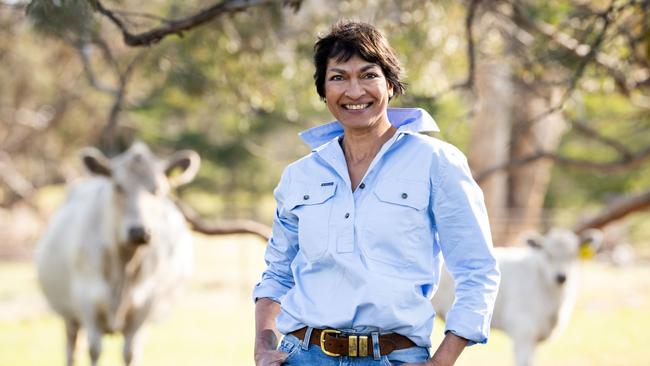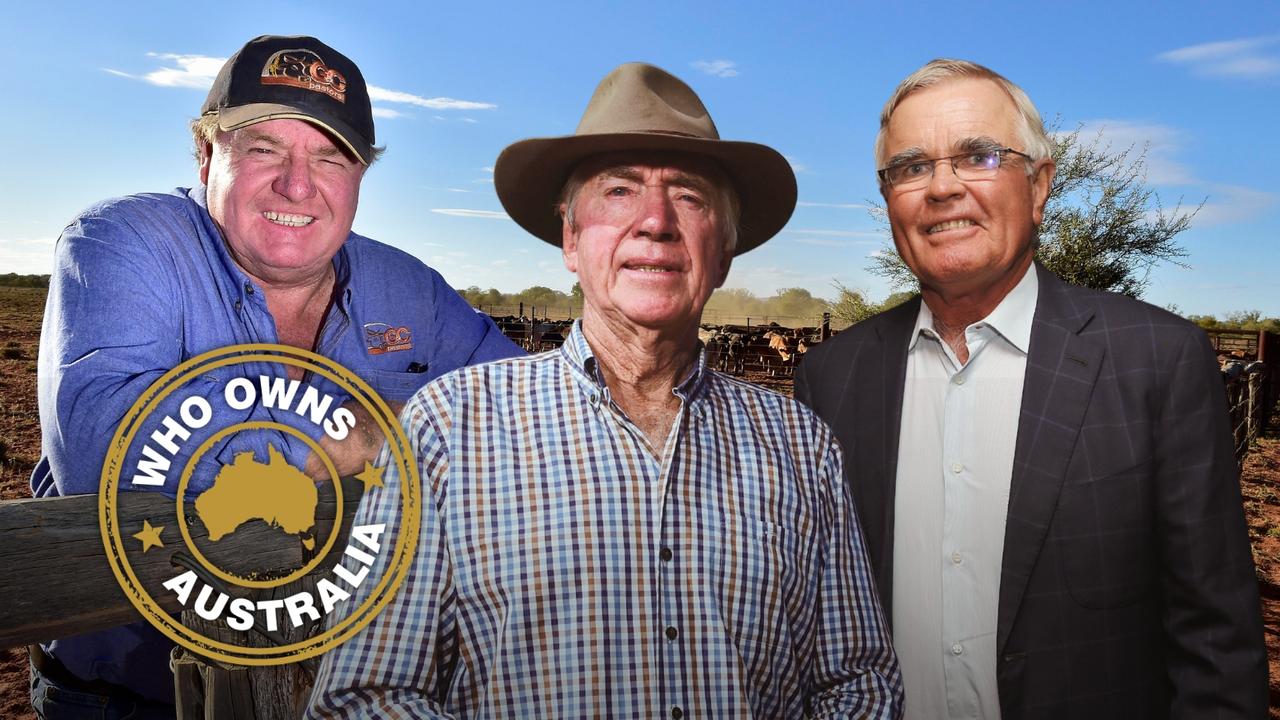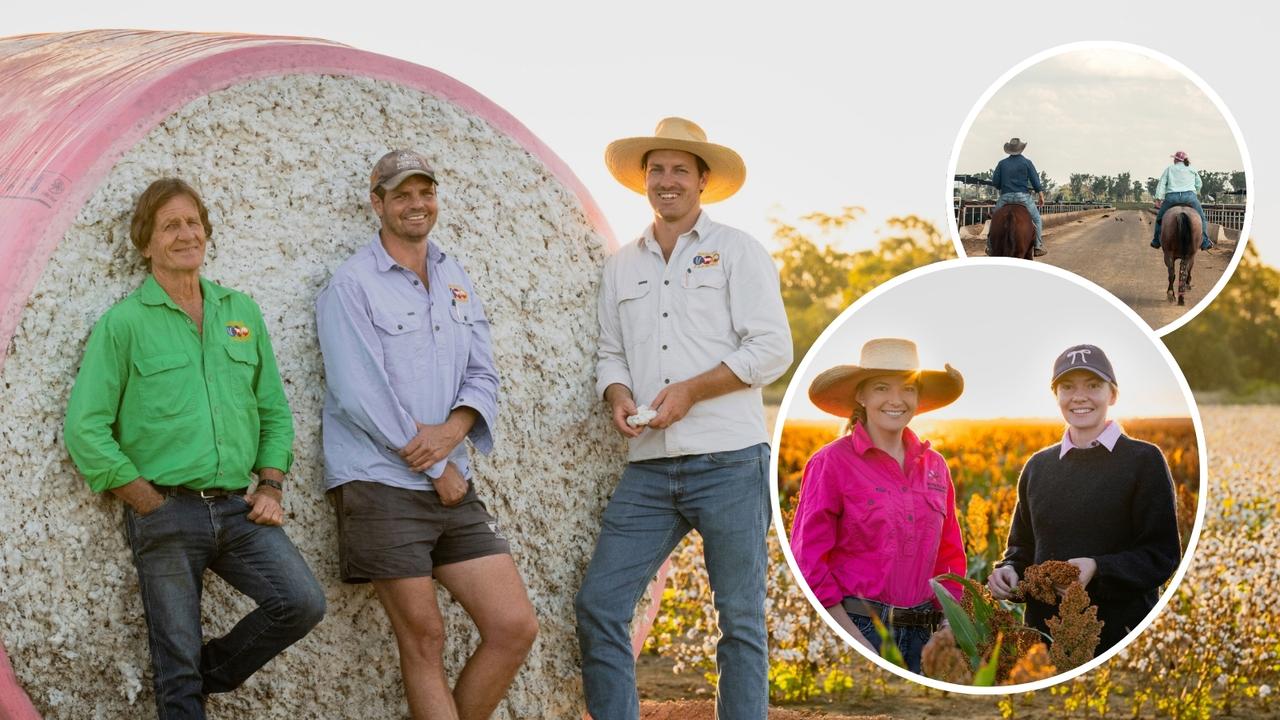Q&A with Su McCluskey: Spruiking the benefits of Australian ag globally
The first Special Representative for Australian Agriculture offers an insight into its position on the global stage, and where we lead the world.

Spruiking the benefits of Aussie ag to a global audience is all in a day’s work for NSW beef farmer Su McCluskey, the first Special Representative for Australian Agriculture. Alexandra Laskie sits down with her for AgJournal.
Su McCluskey, can you give us a snapshot of what your role involves in a practical, day to day sense?
My role is similar to a trade ambassador or a trade envoy where I advocate for Australian agriculture in global markets and use my voice to tell the great story about what we do, largely around trade and market access. I also bring back what I’m hearing and seeing in both a policy and practical sense and share that with industries here.
What technical and policy issues have you made points of focus during your three years in the job?
When I started, the focus was very much around the rules-based trading system, engaging with our technical and standard-setting organisations, and engaging with the WTO (World Trade Organisation), OECD (Organisation for Economic Co-operation and Development) and FAO (the United Nations’ Food and Agriculture Organisation). I think very quickly I saw that sustainability was what it was all about in global markets, particularly coming from the EU but also from many other markets. So my focus has been sustainability, sustainability, sustainability – promoting the Australian Agricultural Sustainability Framework and working with industries here to help encourage them to participate. And now what I see is the sustainability debate moving beyond emissions to nature related, nature positive, natural capital measurements, which includes things such as conservation and biodiversity.
How is Australian agriculture engaging in the race to net-zero as an active part of the global solution?
Australian agriculture is starting to engage really quite well in this, through the AASF, which got their minds thinking about net zero, but also through a lot of the work I see on the ground, in terms of emissions reduction, methane research, waste reduction etc. We’ve also got the Agriculture and Land Sector Plan, one of the six sector plans under the National Climate Strategy, which is the plan to achieve net zero by 2050 and there’s actually been a great consultation process around that. One of the biggest challenges will be demonstrating the value proposition for farmers as this will be a compliance burden for them, particularly smaller family farms. We need to think about how we can help Australian farmers engage on the pathway to net zero which will involve the collection of data, measurement and reporting. We also need to think about how we can make it easy for them to demonstrate the value to their own business and then how this will be important for maintaining our export markets.
What misconceptions have you had to correct about Australian agriculture in dealings?
In the EU, where ideology drives policy, there is a view that we have a high use of chemicals and pesticides and we might not have the best animal-welfare practices. I was in Europe recently and they were saying the consumer wants zero chemicals and pesticides used. And I think, does the consumer want zero use or the most sustainable practices? Because Australian agricultural practices are really sustainable, but sometimes that means using some chemicals and pesticides to achieve that. For example, in our cropping sector we’ve used no-till or low-till for decades. That does require the use of some chemicals but it means we’re actually doing much better for the soil than someone using different practices without chemicals. I was quite surprised that agricultural stakeholders in the EU were not necessarily engaging in trying to educate the consumer. I think that is an important role for us to do because we actually have to dispel the rumours and provide the facts. But we also need to tell the story of sustainable paddock to plate.
What big policy issues are playing out overseas that are less of a focus here, but could surface in the near-term?
Protectionism is the big looming policy issue and what we are seeing is a pulling back from globalisation. Where globalisation was acknowledging and supporting the fact we have global trade, that countries need to trade and it’s good for countries to do this, we’re seeing more protectionism come in, in the EU and in many other countries, even in China. And the real risk for us is markets can shut down overnight, as we’ve seen happen with China. We see other ways countries start to impose tariffs as a trade barrier and that really goes against where we stand on free and open trade. The power of NGOs overseas is also startling, so much more than what we see here in Australia. They are driving policy change as we have seen in the EU, with their prescriptive legislation and this has not stopped at the Farm to Fork strategy. The NGOs now have their eyes on biodiversity and nature repair and are pushing for strict rules and regulations. This impacts us as trading partners, as it can take the form of non-tariff barriers and it also negatively impacts global food security. So we have to make sure we maintain a balanced debate and discussion and not allow our governments and politicians to be hijacked by ideology. Also, if there is one thing we can be certain about, it is uncertainty. Farmers know how to deal with risk, but conflict overseas will impact trade and food security, and conflict seems to be getting worse not better.
How do you feel you have made a difference to the industry in the past three years?
I hope that I’ve been able to raise the awareness and profile of Australian agriculture. I also hope I’ve been able to make overseas countries aware of the great things we’re doing in science, research and in our sustainable practices on farm. We have some of the best soil-health work that we’ve been doing for decades, biodiversity – we’ve been doing it for so long, and we farm without subsidies. And that’s the thing we forget, that lots of other countries are subsidised and we are not. We focus on productivity and profitability. And the fact we can do that, I think really is a testament to how good our Australian farmers are and being able to tell that story is important. In terms of trade and market access, I hope that I have been able to play some part in securing our market access.
Do you feel that you’re having to defend Australia more than promote it?
My view is you can’t go on the defensive. When I first went to Europe there was a lot of talk about alternative proteins. And Australian industry had real concern – “Where should the fake meat be put in a supermarket? Should it even be called that?” – I was speaking at a conference and people were saying that the only way to address climate change was to get consumers to stop eating meat. I’m a beef cattle farmer myself, so I was a bit defensive to start with. Then I thought, that’s not the way we need to have the discussion. So now I say, “Well actually it has to be about choice, access and equity, and informed choice.” We need to make sure the consumer actually understands what the environmental footprint is the whole way through the value chain in terms of producing some of these products. They have to know what the true cost is, including things such as energy inputs and packaging, and they have to understand the nutritional value of what they’re eating. And then they can make an informed choice.
What are the most promising innovations that have the potential to change the sector?
Definitely technology, and technology is changing and improving constantly. We do great things in Australia. At the University of New England in Armidale, what they’re doing around their methane work, smart farms and precision agriculture is amazing. Only a couple of weeks ago I was at the Agrifood Innovation Institute at the ANU in Canberra. One thing that fascinated me was the work they are doing on synbio. It’s synthetic biology and I was really interested in this because things such as gene editing have the most amazing potential which we’ve seen in the seeds and grains industry. I do ask the question, has gene editing, the name of it, been tarnished by what others think around GMOs? Advancements like synbio can be gamechangers in terms of providing safe, nutritious food, particularly where food security already is a challenge.
In what areas is Australian agriculture a world leader?
Certainly our agritech and research. Part of this is because we have the RDC (research and development corporation) model, which is the envy of the world, where industry dollars are matched by government dollars, which means the R&D is focused on industry needs and priorities. The work we’re doing around methane is world-leading. Our AASF is world-leading. Recently I was in Canada and they are asking Australia to help them develop an overarching narrative around sustainability similar to this. We also do fantastic things around soils. Canada has developed a soil strategy, and they have used the Australian National Soil Strategy as a basis for that because they looked around the world and we were world-leading. We are world-leading in our biodiversity and nature conversation work – for example, the fisheries sector does great things around biodiversity and we have had initiatives like Landcare for decades. This will serve us well as we move towards natural capital measurements and reporting.
And where do we lag behind?
We’re lagging behind in terms of data. Data exists in pockets – there’s a lot of data held on farm and along the agribusiness supply chain. What we need to do is get to a stage where we have publicly available data that can be shared, that we can get a better grasp on what we’re doing across different sectors, across different farming operations. Because if each farm knew their baseline, they would know where they can choose to invest to make a difference. And this data can then underpin sustainability credentials. So data and measurement is where we need to invest now and not just around emissions but around natural capital accounting. When I go to other countries, I ask what they’re doing so we can learn and bring that back.





